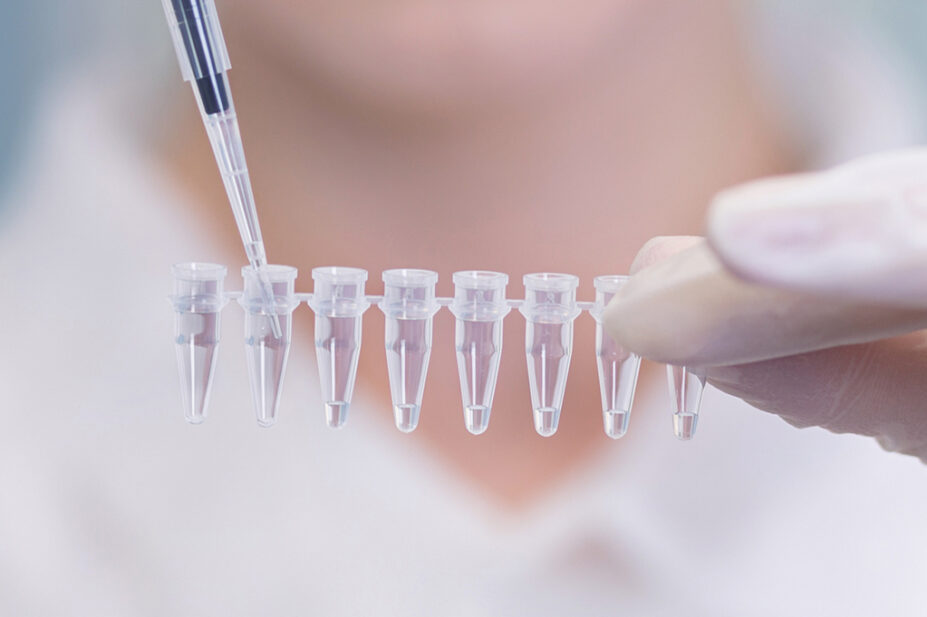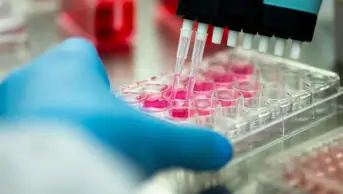
Shutterstock.com
Around one-quarter of patients taking part in a pharmacogenomics trial in England have had their prescriptions changed after receiving their genetic testing results.
According to Jessica Keen, pharmacy lead at NHS North West Genomic Medicine Service Alliance, around 25% of the approximately 400 patients recruited to the ‘Progress programme’ so far have had their prescriptions changed.
Speaking at the Royal Pharmaceutical Society’s Annual Conference, held in London on 8 November 2024, Keen explained: “We’re seeing changes in prescribing in around 25% of people, so in about three-quarters of patients, the guidance is coming back green — no change for their prescription.
“In about a quarter, we recommend a change,” she said.
“This is an actively recruiting study, so we assume [the numbers] might be going up or down as new people are recruited, but that’s ballpark what we’ve been seeing over the period of recruitment so far.”
The study — which began in June 2023 and is being led by the University of Manchester — is the first in the UK to introduce genetic testing before prescribing in primary care.
The programme will test the feasibility of rolling out pharmacogenomic testing for patients taking statins, antidepressants and proton pump inhibitors (PPIs).
It is currently running in ten GP practices across the north-west of England and is now expanding into its second phase.
“We’ve got a couple of practices in Hampshire that have just opened, another one in Cambridgeshire, and we’re expanding around England, so that’s really exciting,” Keen added.
Patients are recruited to the trial through phone consultations and in-person appointments at their general practice. They are also offered an e-consenting option that allows them to consent online after their appointment.
“When the patient comes in and they’re offered a prescription for this index drug, perhaps a statin, they’re given the option at that point if they want to take part in the study, to hold off and wait for the results to come back before we issue the prescription,” Keen said.
“That’s our preference, but we understand there might be clinical scenarios where the patient needs to get started on their treatment.
“In those scenarios, patients can consent, get their prescription and then when the results come back, we can consider whether a change is needed.
“Overwhelmingly, patients are choosing to give a saliva sample rather than a blood sample, although both options are available. We run the test when it arrives in the lab twice a week [and] get the results back in around one week’s time.”
Clinicians are able to view a patient’s results through a platform called Geno, which colour codes guidance on whether a drug is suitable for a patient, dependent on their pharmacogenetic results.
Guidance is green if the medication is still appropriate, or red if the patient has an altered metabolism for a drug that they’re currently taking. Clinicians are then able to view alternative medications, along with the rationale for each suggestion and weigh up options.
Keen said the second phase of the study is working towards integrating the results into systems already being used in practice, such as EMIS and SystmOne.
She noted that pharmacist involvement in the study has been vital, with a pharmacist acting as a principal investigator in two of the practices.
“Pharmacists in practices are actively responsible for research delivery, they are mostly the ones in many of the practice who receive the pharmacogenetics results back as part of the study and then interpret that and make recommendations off the back of it — this is a really key thing, we can’t underestimate their influence.”
Responding to a question on the diversity of the participants in the trial, Keen said that “we’re seeing a real spread across all age groups, from 18 to 24 [years] right up to patients in their 80s, so this is something patients of all ages are accepting.
“We’ve looked at the ethnic diversity mix and we’re seeing it’s broadly in comparison with the local populations from where we’re recruiting from — we’re keeping a keen eye on that,” she added.


